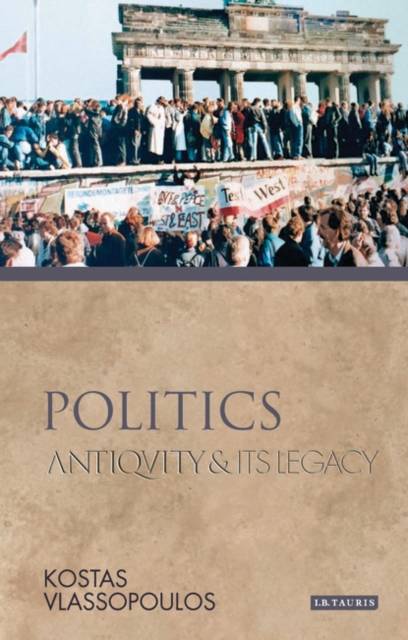
- Afhalen na 1 uur in een winkel met voorraad
- Gratis thuislevering in België vanaf € 30
- Ruim aanbod met 7 miljoen producten
- Afhalen na 1 uur in een winkel met voorraad
- Gratis thuislevering in België vanaf € 30
- Ruim aanbod met 7 miljoen producten
Omschrijving
Ancient Greece is famous as the civilization which 'gave' the world democracy. Democracy has in modern times become the rallying cry of liberation from supposed totalitarianism and dictatorship. And the desire by the western powers, especially America, to foment (or impose) democracy across the globe is one of the most powerful driving motors in present-day geopolitics: not least in Iraq and Afghanistan. Thus, a lively and well informed treatment of the nexus between politics in antiquity and political discourse in the modern era is both timely and apposite. As Kostas Vlassopoulos shows, much can be learned about the practice of politics from a comparative discussion of the classical and the contemporary. His starting point is that the value of looking back to a political system with different assumptions and elements can help us think, and even shape, what the future of modern politics might be.
He discusses the contrasting political systems prevalent in the Greek city-states of Athens, Sparta and Corinth; tensions between democrats and oligarchs in Periclean Athens; the bitter rivalries which led to the Peloponnesian Wars in the fifth century BCE; and, the delicate balance of powers between people, senate and emperor in the hierarchical society of republican and latterly imperial Rome. Above all, the book shows how important and surprising the study of antiquity can be in reassessing and revaluating modern political debates.
Specificaties
Betrokkenen
- Auteur(s):
- Uitgeverij:
Inhoud
- Aantal bladzijden:
- 192
- Taal:
- Engels
- Reeks:
Eigenschappen
- Productcode (EAN):
- 9781845118440
- Verschijningsdatum:
- 10/01/2019
- Uitvoering:
- Hardcover
- Formaat:
- Genaaid
- Afmetingen:
- 140 mm x 218 mm
- Gewicht:
- 362 g

Alleen bij Standaard Boekhandel
Beoordelingen
We publiceren alleen reviews die voldoen aan de voorwaarden voor reviews. Bekijk onze voorwaarden voor reviews.








